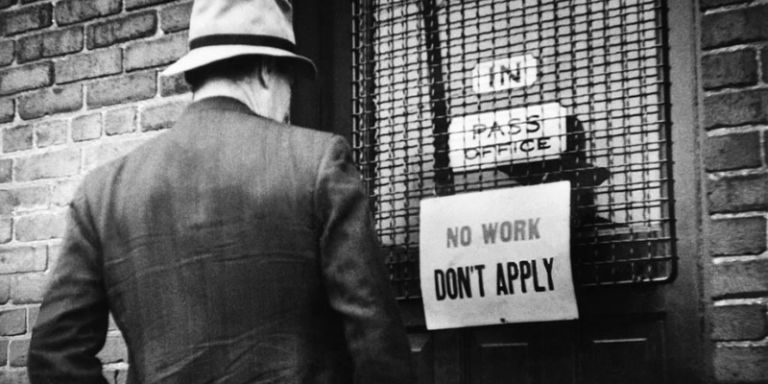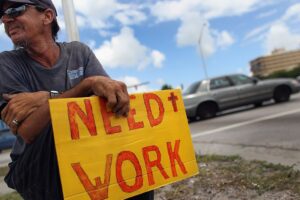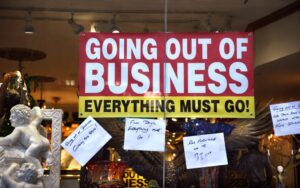The Pros and Cons of Recessions
Both good and bad come from recessions.
By: Andrew Moran | September 12, 2019 | 504 Words

(Photo by NFB/Getty Images)
The economy grows and shrinks, and we call this the boom and bust cycle. A recession is when the national economy declines for two back-to-back quarters, or six straight months. That’s the bust part of the cycle. Recessions are usually reasonably short, lasting on average 18 months. It should not be confused with a depression, which is a severe economic downturn that can take several years.
Even though the negative effects can last a long time – even from short recessions – there are some positives too.
Pros
During a recession, unproductive firms can’t afford to do business, so they shut down. The better run organizations take over and become more successful over time.
While jobs can be hard to find during recessions, a lot of people make their own. Entrepreneurs are people who start their own businesses, a lot of people do during recessions. It’s usually easier to start a business in a recession too because assets – valuable things, like houses – tend to cost less.
Inflation is when the amount of money increases and the value of that money decreases. Price inflation is when the cost of things goes up. Recessions lower both, making it easier on those who manage to keep their jobs or make their own.

(Photo by Joe Raedle/Getty Images)
Cons
Unemployment is the biggest negative effect of a recession. Not only do people lose jobs when companies have to close or get smaller, but jobs are also hard to find.
In any type of downturn, there will always be a decline in investment. Of course, if a recession is over in just six months, the lost output could be made up during the boom phase. However, if the recession is prolonged, like the 2009 financial crisis, then the lost output intensifies.
When people make less money, they pay less in taxes. This adds to the budget deficit, contributes to the national debt, and raises taxes in the future because the bills need to be paid somehow. To fund expenses, the state will need to borrow by selling bonds (debt) on the open market. We call this kicking the can down the road because instead of dealing with the problem now, it delays it two, 10, 20, or 30 years. But the problem must still be addressed, and the longer it takes the more it costs.
Are They Inevitable?

(Photo by Robert Alexander/Getty Images)
You might hear that the market is due for a recession and that prolonged downturns are effects of a free market economy. But it doesn’t work this way; an economy just doesn’t suddenly say, “Humph. You know what? I need a recession!” There are many factors, such as investors misreading market signals, changing consumer demands, market distortions by the Federal Reserve, and unwise public policy (trade or taxes). An economy is never due for a recession, but the boom could happen at any time – and so can the bust.
















